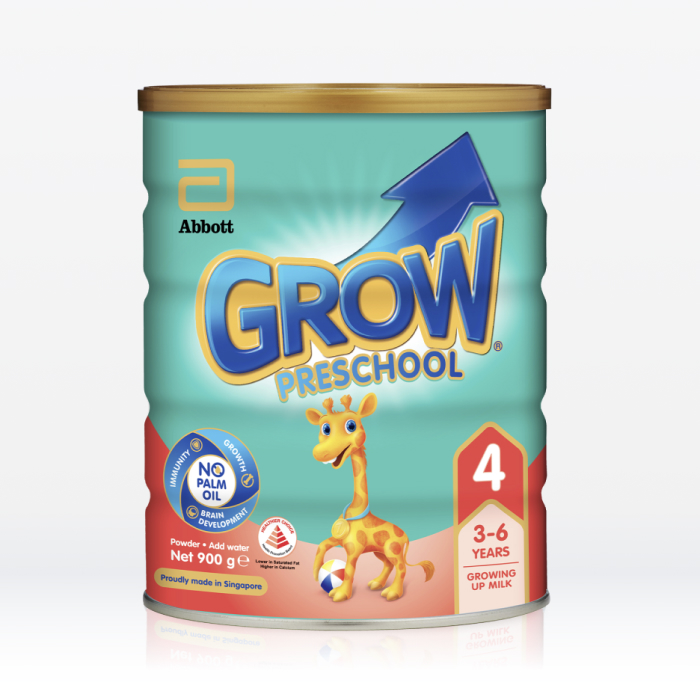Grow® Preschool Stage 4
- Main Image
-

- Subtitle
- 3 – 6 Years Old
- Title
- GROW® Preschool Stage 4
- Detail Page Path
You want to nourish your child with a nutritious diet, so what are the healthy drinks for kids? Most kids sure love sweetened beverages. Take a look at the drink aisles in the supermarkets and you will soon realise that they have many choices to pick from.
While the main reason to drink beverages is to include water in the diet, most choices available provide more calories than nutrients for your kids. Look at the ingredient list for each drink and study the nutrition information panel, to distinguish the smarter and better beverage choices.
Water: Make sure your child has an average of six to eight glasses of water every day. The fluids could come from water per se, or a variety of other liquid options such as soups and juices. Fruits and vegetables come with high water-content too, so be sure that kids have adequate amounts of these healthy foods.
Milk: Kids need to drink up to 2 glasses (250 ml per glass) of milk each day1 as part of a well-balanced diet. Milk provides protein and calcium as well as a host of other important nutrients that are important for a growing child. Colour and flavour milk to add variety to this daily staple and to make it an appealing part of the diet.
Juices: Whenever possible, select juices with no added sugar. Juice contains all of the sugar but none of the healthy fibre that comes from fruit, so try to limit fruit juice to one glass a day.2 Encourage your child to eat more fruits instead as these contain more fibre.
Sweetened and Soft Drinks: These can be used as the occasional treat but should not be considered healthy drinks for kids. Soft drinks have no nutritional value and are loaded with sugar. Instead, look out for the Healthier Choice Symbol (HCS) the next time you go grocery shopping, these options are more nutrient-dense and beneficial than sweetened drinks for your child’s diet.3
References:
1Health Promotion Board. Retrieved on August 28, 2015 from: http://www.hpb.gov.sg/HOPPortal/article?id=2638.
2WebMD. Retrieved on August 28, 2015 from: http://www.webmd.com/diet/juicing-health-risks-and-benefits.
3HealthHub. Retrieved on April 6, 2021 from: https://www.healthhub.sg/live-healthy/211/make_healthier_choice

A Good milk formula contains no palm oil! What savvy parents need to know about fat blends in milk powders.

Worried that your active child’s attention span seems too short to absorb new information? Get to expand his or her knowledge!

Provide your kids with the nutrients they need to study well and stay healthy, learn about key brain food hacks to rock it at school.

How to make learning for kids fun to nurture your child's curiosity and help cultivate the interest in learning. Come out, let's get learning!

Choose a formula with no palm olein for with better absorption of key nutrients such as DHA, AA and calcium.
You are about to exit for another Abbott country or region specific website.
Please be aware that the website you have requested is intended for the residents of a particular country or region, as noted on that site. As a result, the site may contain information on pharmaceuticals, medical devices and other products or uses of those products that are not approved in other countries or regions.
The website you have requested also may not be optimized for your specific screen size.
Do you wish to continue and exit this website?